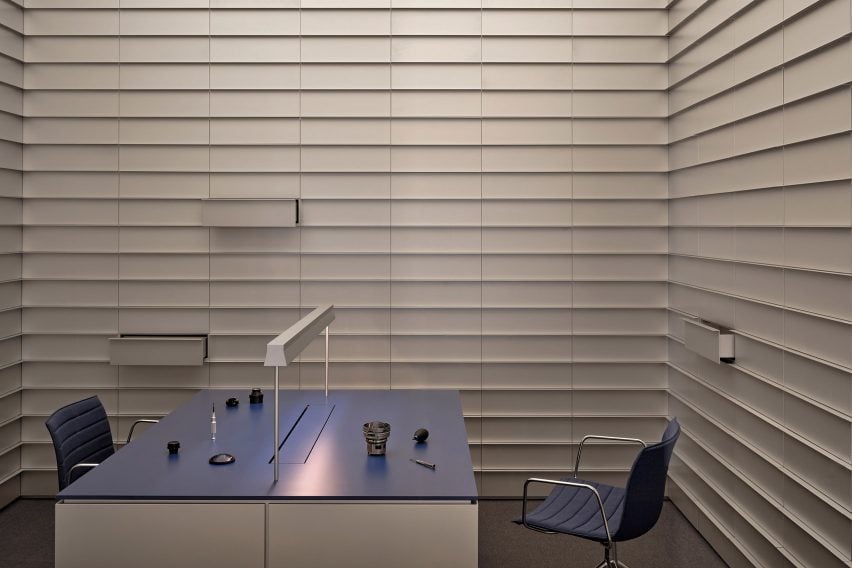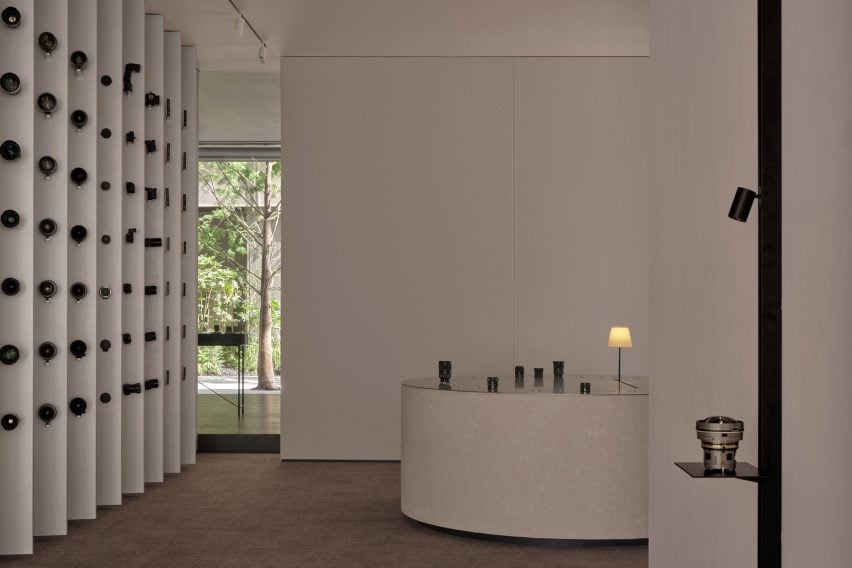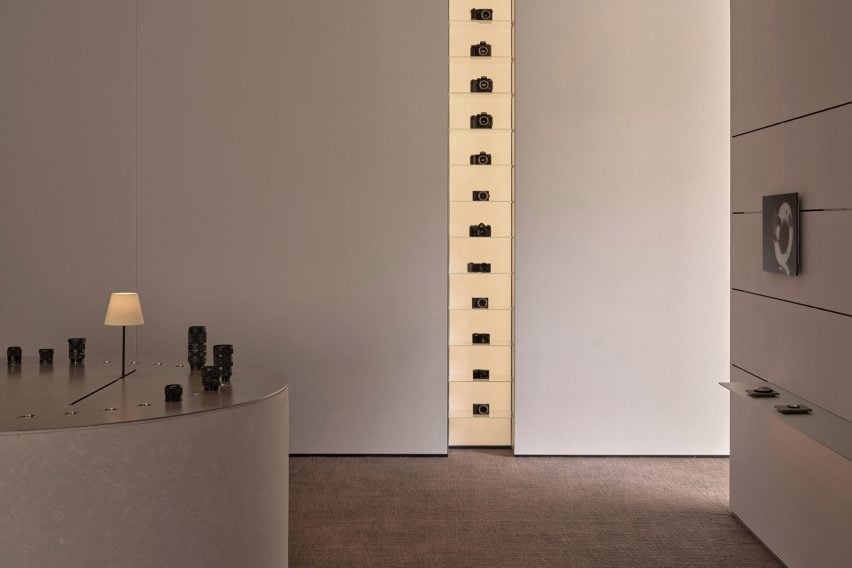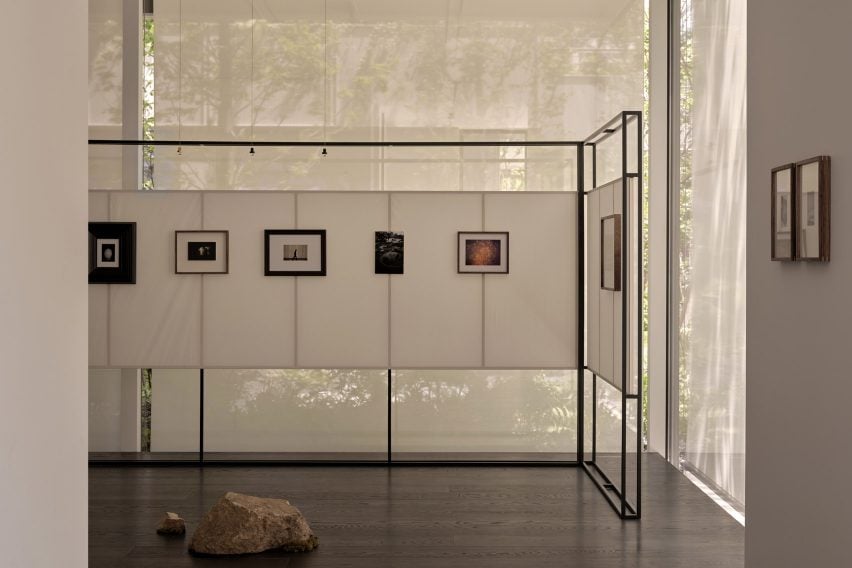Cameras and photographic lenses take centre stage in this minimalist showroom that Chinese firm Onoaa Studio has created for manufacturer Sigma in Shanghai.
Onoaa Studio wanted the 500-square-metre showroom to embody the heritage of Sigma, which has been producing photography equipment out of its factory in the scenic mountain city of Aizuwakamatsu, Japan, since 1973.
In this spirit, the interior has been loosely divided into three areas. First up is the reception, which is meant to reflect the “pure” aesthetic of Sigma and the natural landscape in which its products are made.
Here, walls are coated with white concrete and grey handmade bricks are laid across the floor. A singular bulb suspended from a thin wire hangs above the service desk, the top of which is inlaid with dark blue wool.

The reception also accommodates a small room where Sigma cameras can be taken for repair. At its centre sits a two-person work station.
The surrounding walls are fitted with drawers that store screws and various other camera parts.
An illuminated ceiling gives the space a “laboratory-like serenity”, while two large windows allow customers to look in and observe technicians at work.

Beyond the reception is an area that aims to showcase the high level of craftsmanship that goes into creating Sigma products.
One side of the space is dominated by a ten-metre-wide display wall made up of angled metal fins, supported by a custom-made mount, on which more than 100 of the brand’s lenses are presented.
On an adjacent wall, a light-up niche exhibits cameras on glass shelves. There’s also a chunky circular display plinth crafted from limestone, its shape intended to resemble that of a traditional lens.

Finally, the studio has created a small photography gallery to reflect Sigma’s dedication to the art.
Pictures are shown on the wall or on black-metal standing frames. The natural light here is tempered by sheer white shade screens, hung in front of the windows along the showroom’s north facade.

Sigma Space is shortlisted in the large retail interior category at this year’s Dezeen Awards.
Other projects in the running include streetwear brand Supreme’s store in Miami, which features a floating skate bowl, and Tianjin Zhongshuge bookshop in Tianjin, China, with its slatted steel shelves that look like waves.
The photography is by Jonathan Leijonhufvud.
→ Continue reading at Dezeen
